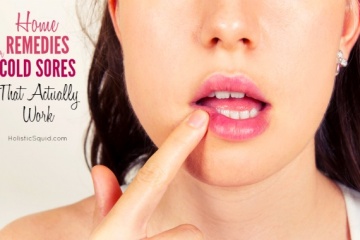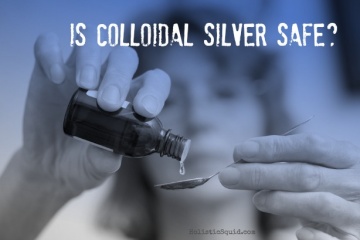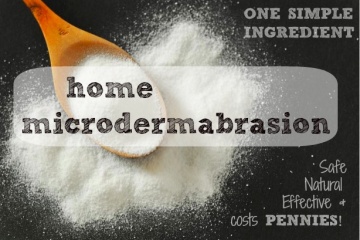

Do you ever just feel ick, blah, BLECH? I know way too many folks who go through their days feeling exhausted and unwell on a regular basis with headaches, mood swings, digestive upset and more. Days like this can snowball, and before you know it, you start to look pudgy and your clothes fit a bit snug. Dark circles appear under your eyes and your skin is just not the same.
Ugh. I know how this feels because I've been there.
Turns out, you may be suffering from a common condition called Leaky Gut Syndrome.
I know, it sounds a little odd and even gross if you take it literally, but it’s a real problem for far more people than you may think, possibly including you. But what is leaky gut syndrome? Let's find out…
What is Leaky Gut Syndrome?
Leaky Gut Syndrome (LGS) is a condition that involves damage of the lining of the small intestine causing incompletely digested nutrients, toxins, bacteria, and wastes to “leak” through the intestines and flood the blood stream.
The foreign substances entering the blood can cause an autoimmune response in the body including inflammatory and allergic reactions ranging from respiratory problems, digestive issues and headaches to joint pain, skin conditions and a whole lot more.
Because damaged cells in the intestines may fail to produce the enzymes needed for proper digestion, absorption of essential nutrients is compromised creating further imbalance throughout the body that can contribute to various issues including hormone imbalance and a weakened immune system.
When substances leak out of the intestines, the liver is forced to work extra hard to filter them out of the blood stream. The extra burden on the liver can result in the accumulation of fatty liver tissue. Some toxins may be sent back into the bloodstream when the liver’s ability to detoxify fails, where they reach muscles and connective tissues.
Leaky Gut Syndrome isn’t typically diagnosed in western medicine, but it’s absolutely real and affects the health of millions of people. Many health issues related to LGS go undiagnosed, misdiagnosed or are ignored by traditional medicine. Patients may be left with frustrating and uncomfortable symptoms, and no answers.
The plain fact of the matter is that the integrity of the intestinal barrier has been shown to be absolutely essential to all kinds of different aspects of health. Here’s just a sampling of what LGS can cause or exacerbate:
Weight gain and metabolism problems
There’s a kind of fat you can’t see but is really bad for you, called visceral fat. It’s in your stomach cavity, but under abdominal muscles, and it can surround your vital organs. When combined with elevated blood pressure and high cholesterol, the result is something called metabolic syndrome, which in turn makes you much more susceptible to heart disease, strokes and diabetes. And it looks like LGS plays a big role in it.
Although more research is needed, one Swedish study found a strong correlation between intestinal permeability and increased visceral fat (source). A Brazilian study zeroed on three key linkages between LGS and obesity: Gut dysbiosis (impaired gut flora), unhealthy dietary patterns (too much fructose and bad fats), and deficiencies in specific nutrients, such as vitamin A, magnesium, zinc, all vitamin D, and calcium, all of which play important roles in maintaining the intestinal barrier. In addition to healing your gut, exercise is a vital part of keeping visceral fat in check.
Anxiety & depression
Leaky Gut Syndrome forces the intestinal immune system to release certain chemicals called cytokines that cause inflammation throughout the body, and the inflammation is what triggers the fatigue, depression, and anxiety.
A Belgian study found that people experiencing chronic fatigue and/or major depression disorders showed evidence of having Leaky Gut Syndrome, unlike the healthy people in the control group.
The good news: Treating these patients with a better diet and specific nutrients reversed Leaky Gut Syndrome, and reduced fatigue and depression (source).
Behavioral issues in kids
Leaky Gut Syndrome has also been linked with autism spectrum disorders and behavioral issues in children. When LGS allows various toxins into the bloodstream, it is the immune response to them that then leads to the wide range of childhood behavioral challenges (source).
Kids who weren’t breastfed (no judgement, just facts), or whose mothers had poor gut flora are much more likely to experience LGS fairly early in life.
Eczema, acne, and other skin problems
There have been researchers who suspect a strong connection between gut health and skin health all the way back to the 1930s. Once again it’s the inflammation from LGS that's to blame.
One study of 80 patients showed that those suffering from acne had much higher levels of LPS endotoxins in their blood – this happens when the digestive tract allows those toxins to leak into the bloodstream.
Altered gut flora also causes the release of Substance P, a gut neuropeptide that plays a significant role in all sorts of skin disorders, which is why probiotics can go a long way towards correcting those problems (source).
PMS, hormone imbalance, and infertility
A healthy digestive system is at the center of strong health, so it makes sense that if it is compromised it will also contribute to PMS, hormone imbalance, and even infertility.
The cause of fertility issues can be clear-cut or obscure. In my clinical experience, regardless of the cause of infertility, healing Leaky Gut Syndrome helps improve the odds of healthy conception across the board.
How to recover from Leaky Gut Syndrome
Here's the silver lining to this story: You can heal your Leaky Gut Syndrome, feel better, and completely redirect your path to a healthy, vibrant life. I know, because I've done so myself.
First, find out for sure if this condition is affecting you with is this Leaky Gut Syndrome Quiz, and learn some simple ways to start healing.
Then, sign up for The Digestive Sessions – a lifetime digital access pass featuring top experts on digestive health sharing all of their wisdom in one place.
If you're serious about turning your health around, don't miss this opportunity.
Ready to get on the road to better health? Click here to get The Digestive Sessions now











thanks for more all this info. I love reading your blog! I’ve been trying to fight my baby’s eczema on his face for 8 months now. Since he turned 2 months. We recently saw an allergist and he tested positive for wheat, eggs, and peanuts. I suspect he is allergic to dairy as well. My question is this – if it turns out that I have LGS, could it be causing his allergies and eczema? I haven’t been eating any of those foods for almost a month and there is no change to his rashes. It’s only on his cheeks and chin. I’m at a loss of what else to do. We have been using desonide lately but it’s not helping at all. We have used many different creams and ointments, different homeopathics, but nothing has helped. Aquaphor has helped the most but barely at all… I need some new ideas. Our naturopath says this is one of the most stubborn cases of eczema she has ever seen… My older child is 4 now but he was allergic to dairy when he was an infant too, nothing helped his eczema until he just grew out of it at about a year and a half.
Hi Inna–my daughter had a rash on her chin and around her mouth that seems to be induced by foods with pectin in them (apples, all fruit jam with pectin…) Might it be contact rash to something? I wipe her face once or twice a day with a cloth dipped in apple cider vinegar diluted in water (just a small splash of ACV). That totally helps clear up her face when I do it for few days. She had impetigo once on her chin and the ACV helped with that. Actually, the ACV seems to help with all the skin issues we have around here–whether it was diaper rash when she was little (a splash in the tub), or bug bites, or face rashes…hmm, come to think of it, I think I see some spots on her chin now (thanks to jam on the plantain pancakes…hmmm). Oh, and probiotics, broth, and cod liver oil to support healing on the inside too.